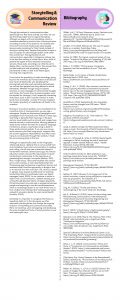Infographic Google Drive PDF Link


References
10Web. (n.d.). AI Emoji Generator review: Features, pros, and cons. 10Web. Retrieved April 6, 2025, from https://10web.io/ai-tools/ai-emoji-generator/#:~:text=By%20making%20the%20process%20of,as%20the%20person%20behind%20it.
Artushin, H. R. (2024, February 2). The case for paper: Books vs. e-readers. Psychology Today. https://www.psychologytoday.com/ca/blog/well-read/202402/the-case-for-paper-books-vs-e-readers
Ascher, M. (1983). The logical-numerical system of Inca quipus. Annals of the History of Computing, 5 (3), 268–278. https://doi.org/10.1109/MAHC.1983.10090
Bolter, J. D. (2000). Writing space: Computers, hypertext, and the remediation of print (2nd ed.). Routledge.
Braille Works. (n.d.). History of Braille. Braille Works. Retrieved April 6, 2025, from https://brailleworks.com/braille-resources/history-of-braille/
Cheng, Z., & Li, Y. (2023). Like, comment, and share on TikTok: Exploring the effect of sentiment and second-person view on the user engagement with TikTok news videos. Social Science Computer Review, 42 (1), 201–223. https://doi.org/10.1177/08944393231178603
Hinchliffe, E. (2022, September 8). How the global literacy rate has changed over 200 years. World Economic Forum . https://www.weforum.org/stories/2022/09/reading-writing-global-literacy-rate-changed/
Indigenous Foundations. (n.d.). Oral traditions. The University of British Columbia . https://indigenousfoundations.arts.ubc.ca/oral_traditions/
Jared, S. (2023, October 31). Why handwritten letters mean so much. The University of North Carolina at Chapel Hill. https://www.unc.edu/discover/why-handwritten-letters-mean-so-much/
Jerin, S. I., O’Donnell, N., & Mu, D. (2024). Mental health messages on TikTok: Analysing the use of emotional appeals in health-related #EduTok videos. Health Education Journal, 83 (4), 395–408. https://doi.org/10.1177/00178969241235528
Little, B. (2021, October 5). What prehistoric cave paintings reveal about early human life. HISTORY . https://www.history.com/articles/prehistoric-cave-paintings-early-humans
Neilson, W. (2017, February 9). No longer part of the school curriculum, cursive writing still plays an important role, say proponents. The Observer, 6–7. https://www.ocna.org/uploads/files/PC05_3rd_Elmira%20Woolwich%20Observer.pdf
Ong, W. J. (2002). Orality and literacy: The technologizing of the word (2nd ed.). Routledge.
Raj, S., & Bansal, R. (2024). Impact of the printing press: Revolutionizing communication in the Renaissance. International Journal of Innovative Engineering and Management Research, 13 (4), 382–387. https://ijiemr.org/public/uploads/paper/443661713794441.pdf
Rick, D. (2013). A brief history of light & photography . https://doi.org/10.13140/2.1.2425.2804
Schwartz, A. B. (2015, May 6). The infamous “War of the Worlds” radio broadcast was a magnificent fluke. Smithsonian Magazine . https://www.smithsonianmag.com/history/infamous-war-worlds-radio-broadcast-was-magnificent-fluke-180955180/
Special Collections & Archives Research Center. (n.d.). The Gutenberg Press . Oregon State University Libraries. https://scarc.library.oregonstate.edu/omeka/exhibits/show/mcdonald/incunabula/gutenberg/
Sylvia, J. J., IV. (2024). Communication: History and forms. In Introduction to Communication and Media Studies . ROTEL. https://rotel.pressbooks.pub/comm-media-studies/chapter/1-1-communication-history-and-forms/
[The History Guy: History Deserves to be Remembered]. (2023, December 6). A brief history of recording sound [Video]. YouTube. https://youtu.be/LSkwqUAfoJw?si=MIZq4gWXIMwO-qrG
Weber, W., Eriksson, Y., & Tan, S. (2023). Editorial: The power of images: How they act and how we act with them. Frontiers in Communication, 8 . https://doi.org/10.3389/fcomm.2023.1320409